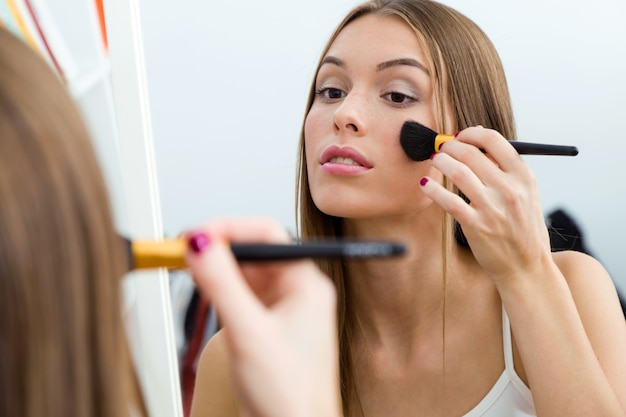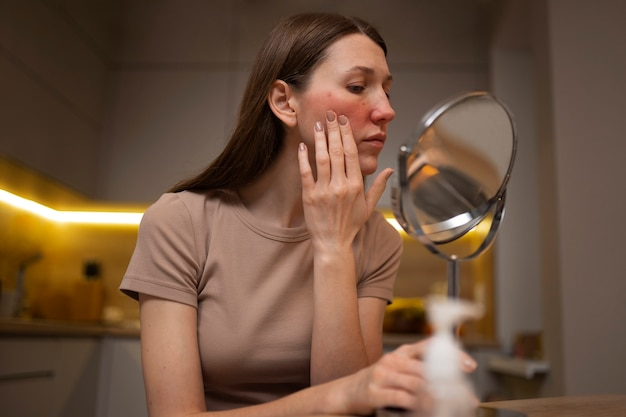The Ultimate Guide to Finding the Best Moisturizer for Your Skin Type
Welcome to “The Ultimate Guide to Finding the Best Moisturizer for Your Skin Type.” When it comes to skincare, one product stands out as a staple in every routine – the moisturizer. An essential step in any beauty regimen, a well-suited moisturizer can work wonders for your skin, providing the hydration and nourishment it needs to stay healthy and radiant. However, with the vast array of moisturizers available on the market, finding the perfect one for your skin type can be a daunting task. Fear not! In this comprehensive guide, we will delve into the world of moisturizers, exploring the best options for dry, oily, sensitive, and acne-prone skin, as well as anti-aging and natural moisturizers. Discover the benefits of using moisturizers and learn how to choose and apply them effectively, so you can confidently embrace a skincare routine tailored to your skin’s specific needs.

Understanding the Importance of Moisturizer
Moisturizers play a vital role in any skincare routine. They help to replenish and lock in moisture, preventing dryness, flakiness, and premature aging. Additionally, moisturizers provide a protective barrier against external factors such as pollution and harsh weather conditions. By choosing the right moisturizer for your skin type, you can effectively nourish your skin and maintain its optimal health.
Identifying Your Skin Type
Determining your skin type is the first step towards finding the best moisturizer. Here are the three main skin types:
Dry Skin: Dry skin lacks moisture and tends to feel tight and rough. It may appear dull, flaky, and may even develop fine lines or wrinkles.
Oily Skin: Oily skin is characterized by excess sebum production, leading to a shiny complexion and enlarged pores. It is prone to acne, blackheads, and other blemishes.
Combination Skin: Combination skin features a mix of both dry and oily areas. The T-zone, which includes the forehead, nose, and chin, tends to be oilier, while the cheeks and other areas may be dry or normal.
How to Choose the Best Moisturizer for Your Skin Type
Choosing the right moisturizer begins with understanding your skin type and its unique requirements. Here are some general guidelines to follow:
Assess Your Skin Type: Determine whether you have dry, oily, combination, or sensitive skin. This knowledge will help you select a moisturizer that caters to your specific needs.
Consider Skin Concerns: Identify any specific concerns you want to address, such as acne, sensitivity, or signs of aging. Look for moisturizers that target these concerns with suitable ingredients.
Read Labels and Ingredients: Pay close attention to product labels and opt for moisturizers that are free from harsh chemicals, fragrances, and irritants. Look for gentle, nourishing ingredients that benefit your skin type.
Test and Observe: Patch-test new moisturizers on a small area of your skin before applying them to your face. Observe how your skin reacts and make adjustments accordingly.
Choosing the Best Moisturizer for Dry Skin
If you have dry skin, it’s crucial to choose a moisturizer that provides intense hydration and helps restore your skin’s moisture balance. Look for the following key ingredients when selecting a moisturizer for dry skin:
Hyaluronic Acid: This hydrating ingredient attracts and retains moisture, helping to plump and moisturize the skin.
Glycerin: Glycerin is a humectant that draws moisture from the air and locks it into your skin, keeping it hydrated.
Ceramides: These lipids help reinforce the skin’s natural barrier, preventing moisture loss and maintaining hydration levels.
Choosing the Best Moisturizer for Oily Skin
When it comes to oily skin, the ideal moisturizer should provide lightweight hydration, control excess oil production, and mattify the skin’s appearance. Here are some key ingredients to look for in a moisturizer for oily skin:
Salicylic Acid: This ingredient helps to unclog pores, regulate oil production, and prevent breakouts.
Niacinamide: Niacinamide is known for its oil-balancing properties and can help reduce the appearance of enlarged pores.
Oil-Free Formulation: Opt for a moisturizer labeled “oil-free” or “non-comedogenic” to avoid clogging the pores and exacerbating oiliness.
Best Moisturizers for Sensitive Skin
Sensitive skin requires gentle, soothing moisturizers that minimize irritation and maintain a healthy skin barrier. When searching for a moisturizer for sensitive skin, consider the following:
Fragrance-Free Formulas: Avoid moisturizers with added fragrances, as they can trigger skin reactions.
Hypoallergenic and Non-Comedogenic Products: Opt for moisturizers specifically formulated to be hypoallergenic and non-comedogenic to minimize the risk of clogged pores and allergic reactions.
Calming Ingredients: Look for moisturizers containing ingredients such as aloe vera, chamomile, or oat extract, known for their soothing properties.
Best Moisturizers for Acne-Prone Skin
When dealing with acne-prone skin, it’s crucial to find a moisturizer that hydrates without clogging pores or exacerbating breakouts. Look for the following features in a moisturizer for acne-prone skin:
Non-Comedogenic Formulas: Choose moisturizers labeled as non-comedogenic, meaning they won’t block pores or contribute to acne formation.
Oil-Free or Lightweight Formulations: Opt for lightweight, oil-free moisturizers that won’t add excess oil to your skin.
Acne-Fighting Ingredients: Seek moisturizers containing ingredients like salicylic acid or tea tree oil, known for their acne-fighting properties.
Anti-Aging Moisturizers
To combat signs of aging, look for moisturizers that provide hydration and target specific concerns such as fine lines, wrinkles, and loss of elasticity. Consider the following factors when selecting an anti-aging moisturizer:
Hydrating Ingredients: Choose moisturizers that contain hydrating ingredients like hyaluronic acid or glycerin to plump and moisturize the skin.
Antioxidants: Look for moisturizers infused with antioxidants like vitamins C and E, which help protect the skin from environmental damage.
Collagen-Boosting Ingredients: Consider moisturizers that include peptides or retinol, known for their ability to stimulate collagen production and improve skin elasticity.
Natural Moisturizers for Skin
If you prefer a more natural approach to skincare, consider using moisturizers that harness the power of natural ingredients. Look for the following characteristics when choosing a natural moisturizer:
Plant-Based Ingredients: Opt for moisturizers that feature botanical extracts, oils, and butters derived from plants.
Organic and Ethically Sourced Ingredients: Choose products made from organic and sustainably sourced ingredients to ensure the highest quality and minimal environmental impact.
Free from Harsh Chemicals: Look for moisturizers that are free from parabens, sulfates, and synthetic fragrances, reducing the risk of skin irritation.
Benefits of Using a Moisturizer
Using a moisturizer offers a multitude of benefits for your skin. Here are some key advantages:
-
- Moisturizers replenish and lock in moisture, preventing dryness and keeping your skin well-hydrated. This helps maintain a healthy skin barrier and prevents issues such as flakiness, tightness, and dullness.
-
- Moisturizers contain beneficial ingredients that nourish the skin, providing essential vitamins, antioxidants, and fatty acids. These nutrients help keep your skin healthy, soft, and supple.
-
- A moisturizer acts as a protective barrier, shielding your skin from external aggressors like pollution, UV rays, and harsh weather conditions. It helps maintain your skin’s natural defenses and reduces the risk of damage and premature aging.
-
- Certain moisturizers contain ingredients that soothe and calm the skin, reducing redness, irritation, and inflammation. This is particularly beneficial for those with sensitive or easily irritated skin.
How to Apply Moisturizer
To reap the full benefits of your moisturizer, it’s essential to apply it correctly. Follow these steps for effective application:
-
- Cleanse your face thoroughly to remove any dirt, oil, or impurities before applying moisturizer. This allows for better absorption.
-
- Dispense a pea-sized amount of moisturizer onto your fingertips. You can adjust the amount depending on your skin’s needs, but remember that a little goes a long way.
-
- Rub the moisturizer between your fingertips to warm it slightly. This makes it easier to spread and allows for better absorption.
-
- Gently massage the moisturizer onto your face using upward motions. Focus on areas that tend to be drier or require extra attention, such as the cheeks, forehead, and neck.
-
- Use a separate eye cream or a small amount of moisturizer to gently pat around the delicate eye area. Be careful not to tug or pull on the skin.
-
- Give your moisturizer a few minutes to fully absorb into the skin before applying any other products or makeup. This allows for optimal hydration and effectiveness.
Benefits of Using Natural and Organic Moisturizers
Opting for natural and organic moisturizers offers additional benefits for your skin and the environment. Here are some advantages:
-
- Natural and organic moisturizers are often free from harsh chemicals, synthetic fragrances, and artificial additives. This makes them suitable for sensitive skin and reduces the risk of irritation or allergic reactions.
-
- Natural and organic moisturizers are typically produced using sustainable practices and without harmful pesticides or chemicals. Choosing these products helps support eco-friendly skincare and reduces the impact on the environment.
-
- Natural and organic moisturizers often contain plant-based ingredients like botanical extracts, essential oils, and shea butter. These ingredients provide additional nourishment and hydration to your skin.
-
- By selecting natural and organic moisturizers, you can avoid potentially harmful substances such as parabens, sulfates, phthalates, and artificial colors. This promotes a healthier skincare routine.
How Often Should You Use Moisturizer
The frequency of moisturizer usage depends on your skin type and personal preferences. Here are some general guidelines:
-
- For most skin types, moisturizing twice a day—morning and evening—is recommended. This ensures continuous hydration and protection throughout the day and night.
-
- If you have dry skin, you may benefit from applying moisturizer more frequently, especially during colder months or in dry climates. Consider using a heavier, cream-based moisturizer to provide extra moisture and nourishment.
-
- Even if you have oily or combination skin, it’s important to moisturize regularly. Look for lightweight, oil-free moisturizers that won’t clog pores or contribute to excess oil production.
-
- Pay attention to how your skin feels and adjust your moisturizer usage accordingly. If your skin feels dry or tight, consider applying moisturizer more frequently or switching to a more hydrating formula.
Armed with knowledge about the different types of moisturizers and their specific benefits, you are now equipped to make informed decisions for your skincare routine. Remember that your skin is unique, and finding the ideal moisturizer might take some trial and error. Don’t hesitate to explore the variety of options available and consider consulting a skincare professional if needed.
By nourishing your skin with the right moisturizer, you’re taking proactive steps toward a healthier and more radiant complexion. So, whether you have dry, oily, sensitive, acne-prone, or aging skin, or if you prefer natural and organic products, there’s a perfect moisturizer waiting for you. Embrace the joy of self-care and enjoy the transformation as your skin thanks you for the TLC it deserves. Cheers to healthy, glowing skin that reflects the beauty within!




